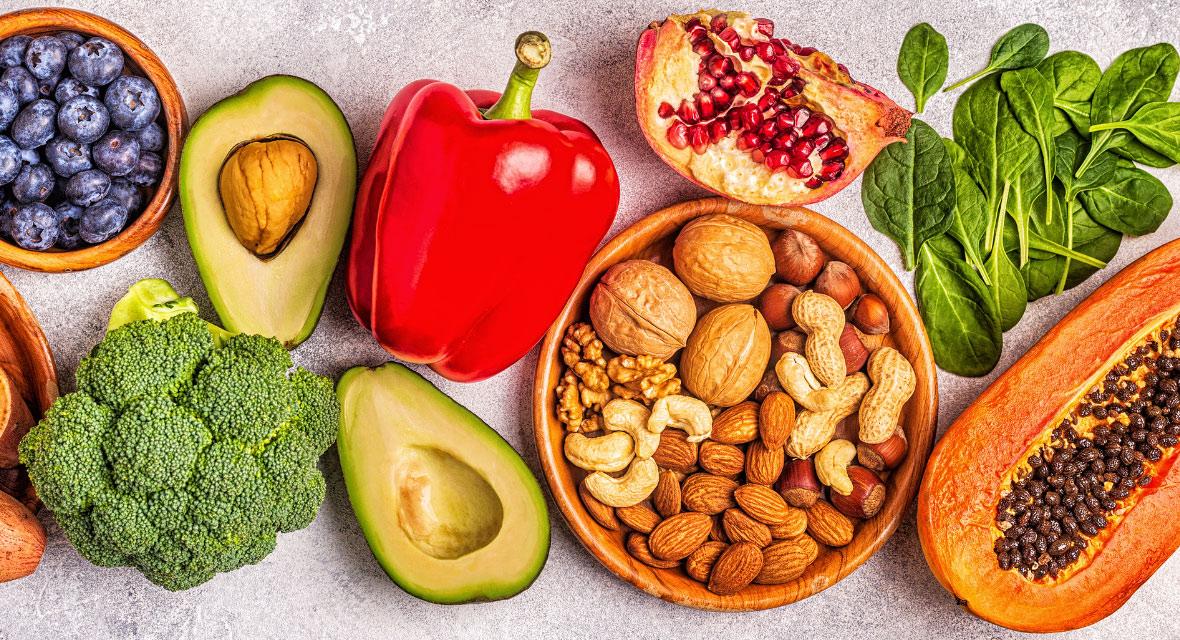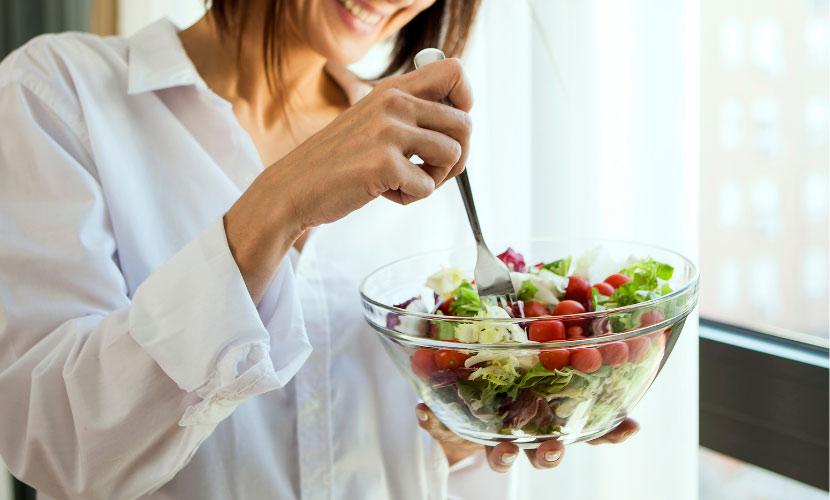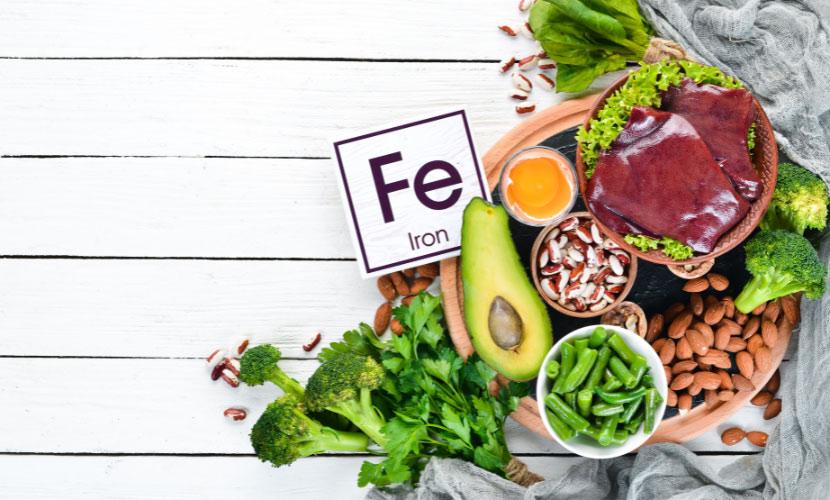🏆 As seen and loved on Shark Tank Dubai 🏆

Effects of a Healthy Diet on Ageing
Healthy Food Choices and Its Impact As You Age
It goes without saying that eating healthy at any age is crucial. Be it during your childhood (for growth and development), your adolescence (for adjusting to the transition), or your adulthood (for maintenance and sustenance of your body), a proper diet will always help you stay healthy. In your midlife, as you start ageing, a proper diet helps you cope with the deteriorating organs. Therefore, you would often find doctors and nutritionists recommending people in their 50s and 60s to adopt new diet changes.
Eating healthy will keep those internal organs working like well-oiled machines, and you will see the benefits externally. This is because a healthy diet slows down the effects of ageing, and in turn, your skin, hair, and overall outer appearance look younger than you actually are. Let us understand how that happens and what changes you need to bring about in your diet to ensure you extract the most benefits in your old age.
Impact of Ageing on Your Diet
As you age, your metabolism slows down, muscle mass decreases, and nutritional needs change. It becomes crucial to focus on nutrient-dense foods, increase protein intake, and maintain a well-balanced diet to support overall health and address age-related health challenges. Some of the most pivotal changes that you would experience as you age are as follows:
Decreased Metabolism
As you hit your 40s, you will experience a decline in your metabolic rate. As such, burning calories would be more difficult than it was in your youth. Therefore, if you continue to intake the same amount of calories as you did earlier, you will invariably gain weight. This is all the more concerning for people who don't engage themselves in physical activities. Therefore, each calorie you consume after you hit your 40s should be packed with high nutritional value only.
Now, you may wonder how many calories you need to consume, right? As per the Academy of Nutrition and Dietetics, a number of factors would influence the number of calories you need to consume. Primary among them are your age, activity level and gender.
For low-active men and women over the age of 51, the number of calories per day should be 2,000 and 1,600, respectively. For moderately active men and women over the age of 51, it should be 2,300 and 1,800, respectively. For highly active men and women in the same age group, the ideal number is 2,600 and 2,100, respectively. Also, it is imperative to get active and maintain a healthy metabolism.
Loss of Taste Buds
Nothing can compare to the luxury of having the ability to experience different types of tastes. Yes, we call that luxury because as you age, you tend to lose the sensitivity of the nerves surrounding your taste buds. We are born with around 10,000 taste buds. Most of them are present in and around our tongue's surface. This is why in our prime age, we are able to taste so many different platters. But after your 50s, the nerve cells that send those taste signals to your brain wear out.
Therefore, many people beyond their 50s often find their platter to be pale. Salty and bitter taste buds are the first among many to lose sensitization. As such, you might be inclined to use more table salt in your already salt-included cooked food. Sweet taste buds are the longest to survive. This is the reason why old people often overindulge in sweet snacks and desserts.
Low Appetite
As you grow old, your appetite takes a downfall. The same willingness to devour food that you had in your 20s or 30s might not continue in your 50s and 60s. It mostly results from the loss of senses. This is also the reason why many people in their old age tend to lose weight inexplicably. There are also often reports of dehydration since people in their 60s and 70s also experience a decline in thirst.
If you find yourself or a loved one in a similar situation, consult a doctor immediately and chart out a balanced diet to supplement the weight loss.
Healthy Eating Habits to Adopt as You Age

Adapting is a way of survival. With a few changes in your diet, you can increase your lifespan and live a healthy life in your old age. Here are a few of the nutritional needs you need to take care of as you start ageing.
Fibre
The most important nutrition as you age is undoubtedly fibre. This is because constipation is common among adults over the age of 65, especially among women who have it two-three times worse than men. Since old people are usually less active and take more medications than their younger counterparts, constipation is bound to happen. Fibre assists in relieving constipation, and it can pass through your gut undigested, which, in turn, helps form stool and encourage bowel movements.
In the colon walls of old people, tiny pouches often build-up, which can get inflamed or infected. Fibre helps in eliminating the risks of such diverticular diseases as well. So, eat bananas, avocados, strawberries, pears, whole grains, beans, broccoli, potatoes, apples, and nuts, among other fibre-rich foods.
Protein
Studies indicate that people lose 3-8% of their muscle mass each decade after hitting their 30s. Since it is extremely common for old people to lose muscle strength (medically known as sarcopenia), therefore, it goes without saying that a high-protein diet is extremely important. People who eat protein daily lose 40% less muscle mass than those who don't include protein in their daily diet.
Eggs, chicken breasts, shrimps, lean beef, turkey breasts, tuna, and most other fish are healthy sources of protein. But if you are looking for vegetarian meal plan in Dubai, then be sure to include Brussels sprouts, Greek yoghurt, almonds, milk, cottage cheese, oats, lentils, pumpkin seeds, peanuts, and quinoa in your diet.
Vitamin B12
It has been seen that after the age of 50, around 10-30% of adults lose their ability to absorb vitamin B12. This vitamin is an extremely important water-soluble vitamin which is known as cobalamin. It not only helps in the production of Red Blood Cells (RBCs) but also keeps your brain sharp.
Vitamin B12 is, for the most part, bound to proteins. Your stomach acid helps in separating it from the proteins after consumption. As old people tend to produce less stomach acid, the absorption of vitamin B12 takes a downfall. As such, they suffer from atrophic gastritis. Vegan and vegetarian diet plan consuming people often lack vitamin B12 since its main sources are fish, eggs, dairy products, and meat. For them, we can recommend fortified cereals.
Vitamin D and Calcium
As your bones gradually weaken, including calcium and vitamin D in your diet becomes all the more crucial. While calcium helps in building and maintaining healthy bones, vitamin D helps in absorbing calcium. Your gut absorbs less calcium as you start ageing. The main source of vitamin D is sunlight. Your body consumes vitamin D through the cholesterol in your skin when it is exposed to sunlight. But as your skin starts thinning in old age, so does its ability to absorb vitamin D.
So, make sure you have calcium-rich foods such as yoghurt, seeds, milk, beans, lentils, sardines, salmon, whey protein, almonds, green leafy vegetables, edamame, tofu, and figs. While most of these foods would also supplement our need for vitamin D but still include mushrooms, cod liver oil, cereal, orange juice, and other vitamin-D-rich food in your diet.
Iron

Iron would help in fighting anaemia in old people. It is a medical condition where less oxygen is generated in your blood than what is required. So, to tackle this situation, you need to provide yourself with quinoa, spinach, broccoli, tofu, pumpkin seeds, legumes, pomegranate, and fish.
Omega 3 Fatty Acids
Omega 3 fatty acids would help in lowering the risks of heart attacks, strokes and other related ailments. In addition, it also helps control blood pressure and triglycerides.
Food sources that provide omega-3 fatty acids are cod liver oil, salmon, mackerel, herring, anchovies, chia seeds, walnuts, sardines, and flax seeds.
Magnesium
Magnesium is a multi-beneficiary nutrient that helps in regulating your never function, muscle function, blood pressure, and blood sugar level while also building DNA and bone.
Some of the healthiest sources of magnesium are legumes, dark chocolates, avocados, whole grains, tofu, green leafy vegetables, bananas, etc.
Potassium
Adequate intake of potassium helps in lowering the risks of kidney stones, heart diseases, high blood pressure, osteoporosis, and overall muscle maintenance. Naturally, elderly people require help in all these departments.
Therefore, make sure you provide them with meal plans that has potassium-rich ingredients such as sweet potatoes, regular potatoes, broccoli, spinach, peas, mushrooms, green leafy vegetables, cucumbers, apricot, grapefruit, tomato, tuna, halibut, soybeans, kidney beans, lima beans, nuts, etc.
Conclusion
With age, you need to control the portion of your food but not the amount of nutrients. If anything, you should be more cautious about your nutritional requirement since, with fewer physical activities, all your energy and strength will be generated from what you consume.
Pay attention to your protein, fibre, vitamin B12, vitamin D, calcium, iron, potassium, and magnesium requirement. If you follow the dietary requirements we have mentioned, you will notice the signs of ageing in your dietary habits (such as loss of taste buds and appetite) will also slow down. Life is an investment, and the changes that you incorporate in your midlife will give you profit through a healthy old age.
Reach out to start your fitness journey with us!
Meal Plans
Delivery Details
Legal Information
© 2020-2026 VMeals. All rights reserved. VMeals™ is a trademark of Flip Side Restaurant and Cafe L.L.C
We accept
